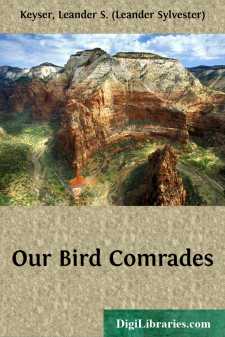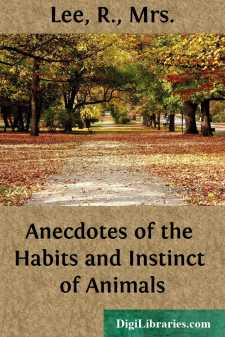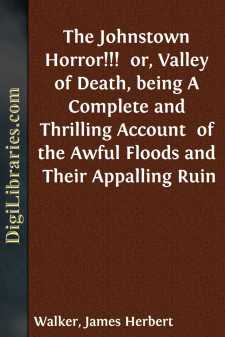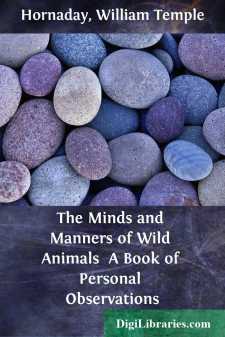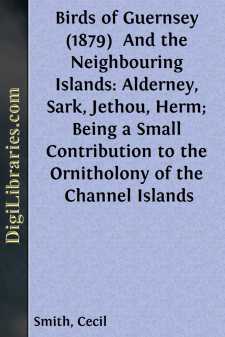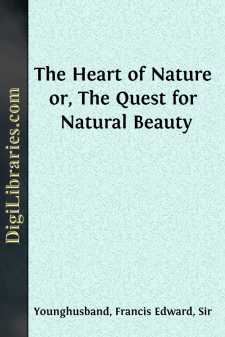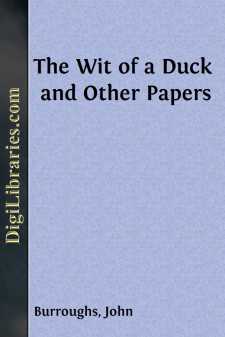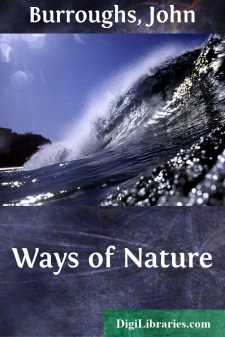Nature
Nature Books
Sort by:
olitude! Where under trees and sky shall you find it? The more solitary the recluse and the more confirmed and grounded his seclusion, the wider and more familiar becomes the circle of his social environment, until at length, like a very dryad of old, the birds build and sing in his branches and the "wee wild beasties" nest in his pockets. If he fails to be aware of the fact, more's the...
more...
BEGINNING THE STUDY Why should not people ride natural history hobbies as well as other kinds of hobbies? Almost all persons become interested in some special study, recreation, or pastime, and their choice is not always as profitable as the selection of a specific branch of nature lore would be. The writer confesses that he would rather pursue a bright, lilting bird or butterfly than a bounding...
more...
by:
R. Lee
THE QUADRUMANA, OR MONKEY TRIBE. Formed like man, and practicing similar gestures, but with thumbs instead of great toes upon their feet, and with so narrow a heel-bone, that even those who constantly walk upright have not the firm and dignified step of human beings; the Quadrumana yet approximate so closely to us, that they demand the first place in a book devoted principally to the intellectual...
more...
CHAPTER I. The Appalling News. On the advent of Summer, June 1st, the country was horror-stricken by the announcement that a terrible calamity had overtaken the inhabitants of Johnstown, and the neighboring villages. Instantly the whole land was stirred by the startling news of this great disaster. Its appalling magnitude, its dreadful suddenness, its scenes of terror and agony, the fate of thousands...
more...
PREFACE During these days of ceaseless conflict, anxiety and unrest among men, when at times it begins to look as if "the Caucasian" really is "played out," perhaps the English-reading world will turn with a sigh of relief to the contemplation of wild animals. At all events, the author has found this diversion in his favorite field mentally agreeable and refreshing. In comparison with...
more...
by:
Cecil Smith
BIRDS OF GUERNSEY. 1. WHITE-TAILED EAGLE. Haliaeetus albicilla, Linnsaeus. French, "Aigle pygarque," "Pygarque ordinaire."—The White-tailed Eagle is an occasional but by no means uncommon visitant to all the Islands. I have seen specimens from Alderney, Guernsey, and Herm, and have heard of its having been killed in Sark more than once. It usually occurs in the autumn, and, as a rule,...
more...
PREFACE The value of Knowledge and Character is duly impressed upon us. Of the value of Freedom we are told so much that we have come to regard it as an end in itself instead of only a means, or necessary condition. But Beauty we are half-inclined to connect with the effeminate. Poetry, Music, and Literature are under suspicion with the average English schoolboy, whose love of manliness he will share...
more...
CHAPTER I. Jenny Wren Arrives. Lipperty-lipperty-lip scampered Peter Rabbit behind the tumble-down stone wall along one side of the Old Orchard. It was early in the morning, very early in the morning. In fact, jolly, bright Mr. Sun had hardly begun his daily climb up in the blue, blue sky. It was nothing unusual for Peter to see jolly Mr. Sun get up in the morning. It would be more unusual for Peter...
more...
by:
John Burroughs
JOHN BURROUGHS John Burroughs was born April 3, 1837, in a little farmhouse among the Catskill Mountains. He was, like most other country boys, acquainted with all the hard work of farm life and enjoyed all the pleasures of the woods and streams. His family was poor, and he was forced at an early date to earn his own living, which he did by teaching school. At the age of twenty-five he chanced to read...
more...
by:
John Burroughs
WAYS OF NATURE I was much amused lately by a half-dozen or more letters that came to me from some Californian schoolchildren, who wrote to ask if I would please tell them whether or not birds have sense. One little girl said: "I would be pleased if you would write and tell me if birds have sense. I wanted to see if I couldn't be the first one to know." I felt obliged to reply to the...
more...



